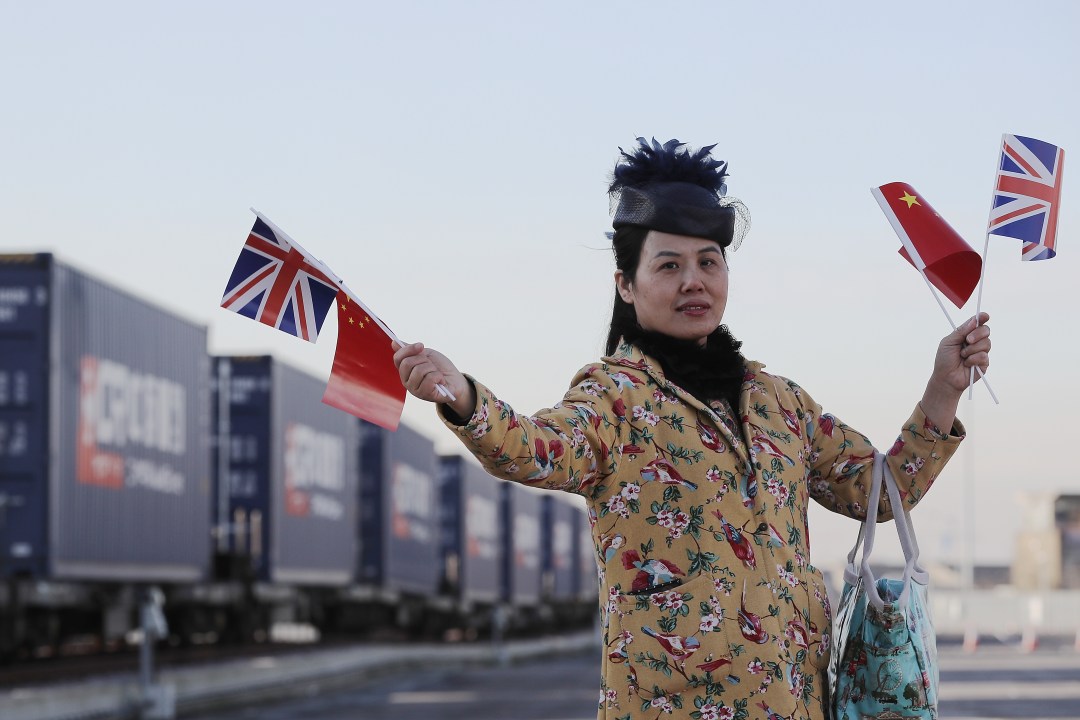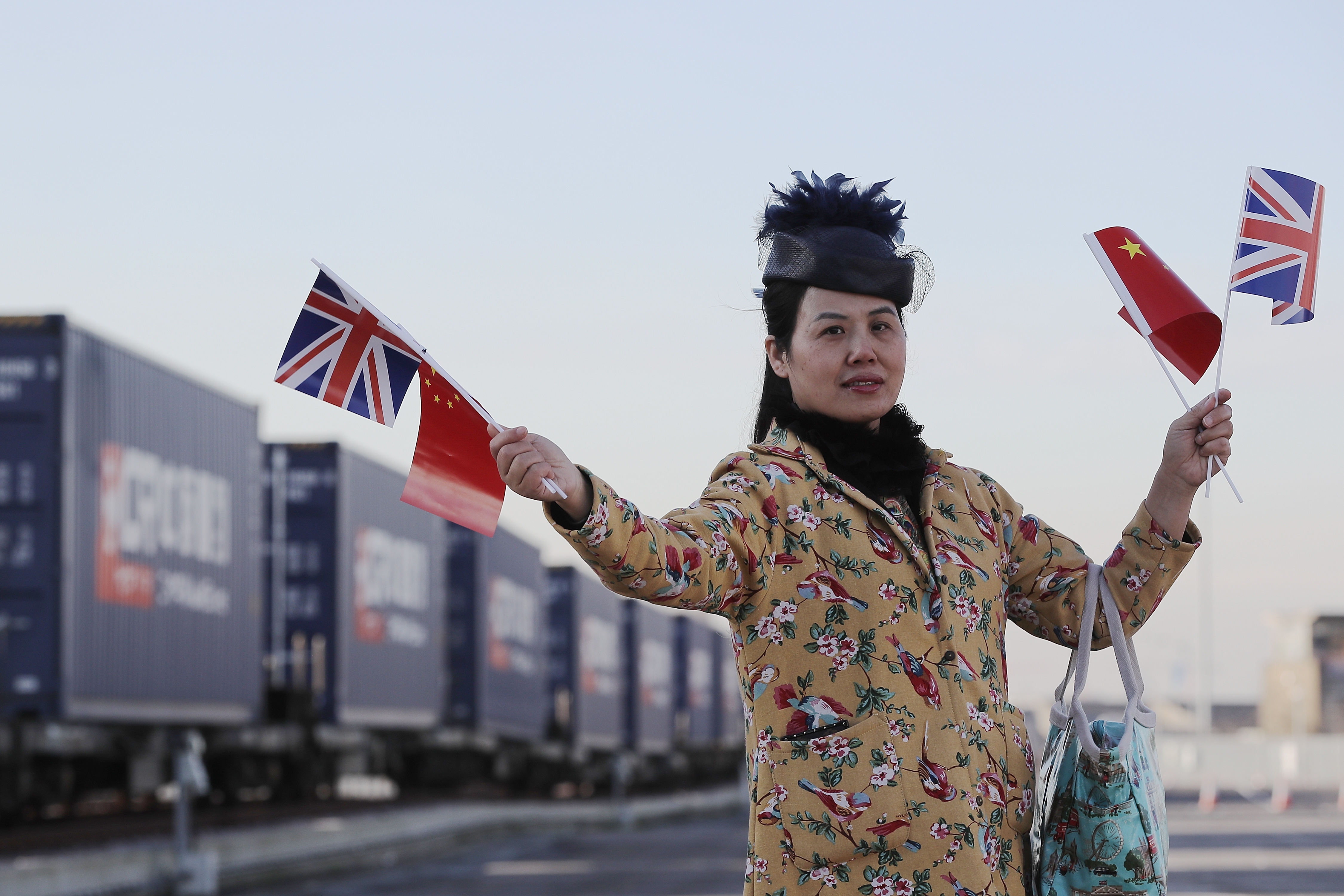The UK doesn’t have a China strategy. We have not had one since George Osborne declared a ‘golden era’ of Sino-British relations on a trip to Beijing in 2015. In hindsight, Osborne’s ‘era’ looks more like an ‘error’.
Yet, Covid-19 makes clear that the UK needs to adopt one. The death and destruction caused by the coronavirus are partly a result of the bullying and lies that characterised the Chinese Communist Party’s efforts to cover up the initial outbreak. Not only has China sought to dodge the blame for the pandemic, but it has also sought to take credit for dealing with it. Throughout Western capitals, long overdue assessments are now taking place about how to deal with China.
Such a strategy will have to be multi-faceted. It will need to take into account China’s full-spectrum approach to foreign policy, in which it combines economic coercion, military sabre-rattling, a mammoth state-sponsored media empire, and cohorts of witting and unwitting accomplices. It also steals intellectual property on a gigantic scale and attempts to snap up the West’s best technology firms. All of this is used in order to achieve Xi Jinping’s goal for China to be the world’s most powerful country by 2049.
We may not have a strategy for dealing with China, but China has a strategy for dealing with us
So central to any UK strategy will be the need to reduce strategic dependency on China. As a report by the Henry Jackson Society notes, the UK is strategically dependent on China for 229 categories of goods, including 57 that relate to critical infrastructure. The pandemic has made clear that the supply of these goods is vulnerable to interruption, whether by mistake or design.
China made more than 40 per cent of the world’s surgical masks, gloves, goggles, visors, and medical equipment before the pandemic began, and has vastly expanded production since. But throughout late March and into April, it claimed much of the production for itself. New export restrictions introduced by the CCP last month led to significant shortages of equipment in the West. When some of it finally arrived, it was useless. In April, the UK took delivery of £17 million worth of antibody test kits that did not to work.
Of course, the UK cannot turn its back on China. This is not the Cold War, during which economic links between the West and the Soviet Union were limited. But the coronavirus crisis highlights the urgent need for the UK to improve its supply chain security. Parts of Whitehall have been aware of this for some time; a policy document released by the Ministry of Defence in 2017 noted the need for ‘further steps to increase the robustness and resilience of our supply chains’. It is unclear how other government decisions – such as the inclusion of Huawei in the UK’s 5G networks – square with this.
A useful starting point would be to conduct a thorough review to identify and address vulnerabilities in strategically important or critical areas, such as electrical components and pharmaceuticals. Currently, the majority of the UK’s aspirin is imported from China. The review should also include an audit of the supply chains for goods that will be central to the so-called fourth industrial revolution.
China is the world’s biggest exporter of manufactured goods and has been for over a decade. We allowed this dependency to develop because the conventional wisdom since the end of the Cold War was that China’s economic rise came with no political cost. Indeed, it was argued, prosperity would bring democracy. But the reality is that CCP’s talk of ‘win-win’ was never anything of the sort.
We may not have a strategy for dealing with China, but China has a strategy for dealing with us. So says Charles Parton, who has been one of Britain’s top China-watchers for decades. The CCP demands supine fealty. With its ‘wolf warrior’ diplomacy, Beijing actively and angrily intervenes in countries’ domestic debates. Assertive diplomacy leads to bullying, locking countries in the diplomatic doghouse, and even hostage diplomacy.
The aim is to convince us that China’s rise is inevitable and irresistible – and that what is in China’s best interest is also in ours. Instead of prioritising our own national security, our own interests and values, the CCP pressures us to diplomatically marginalise Taiwan and Tibet; to ignore China’s illegal annexation of parts of the South China Sea; to allow Chinese companies into our 5G networks; to support the Belt and Road Initiative and to downplay the grotesque abuse of human rights in Xinjiang and elsewhere.
For years, the CCP sought to rewrite history within China’s borders, but now it is seeking to rewrite the present internationally.
Some countries have responded by making clear that they intend to consciously decouple from China. Last month, Japan announced that it was devoting more than $2.2 billion (£1.8 billion) of its coronavirus stimulus package to help companies move production out of China. Late last year, the US government began discussing a plan to rebuild key supply chains that depend on China into a ‘global trusted network’ that circumvented them. It is time for the UK to follow suit.







Comments